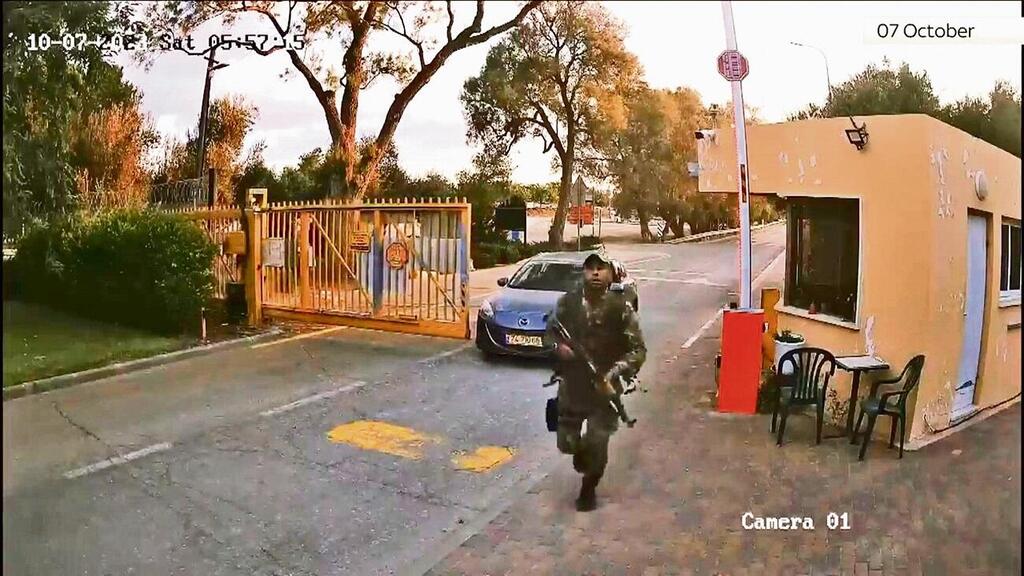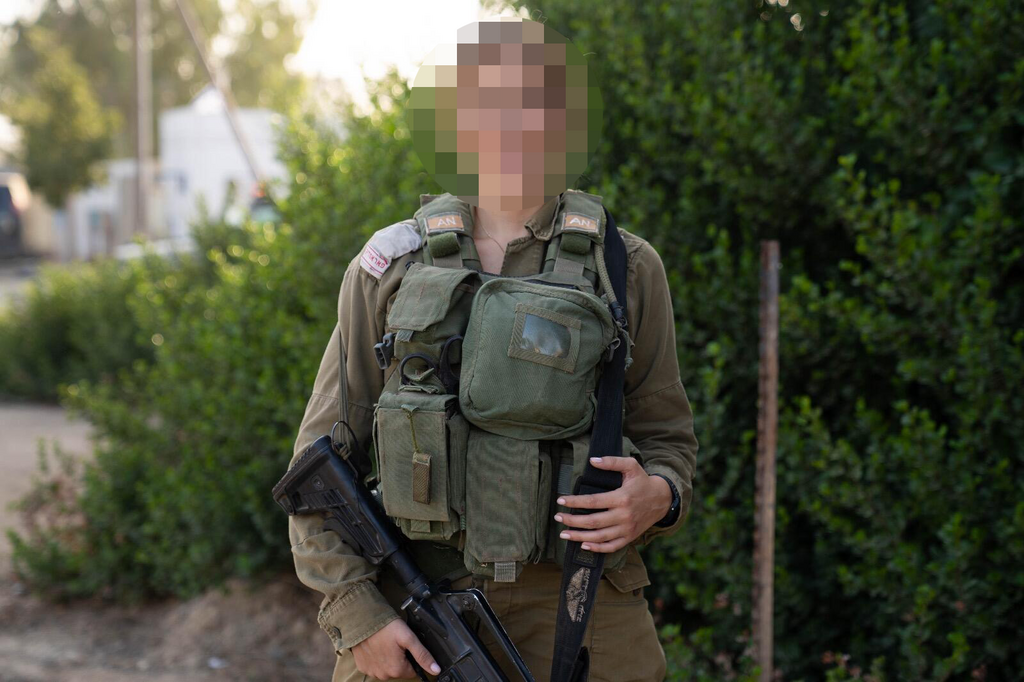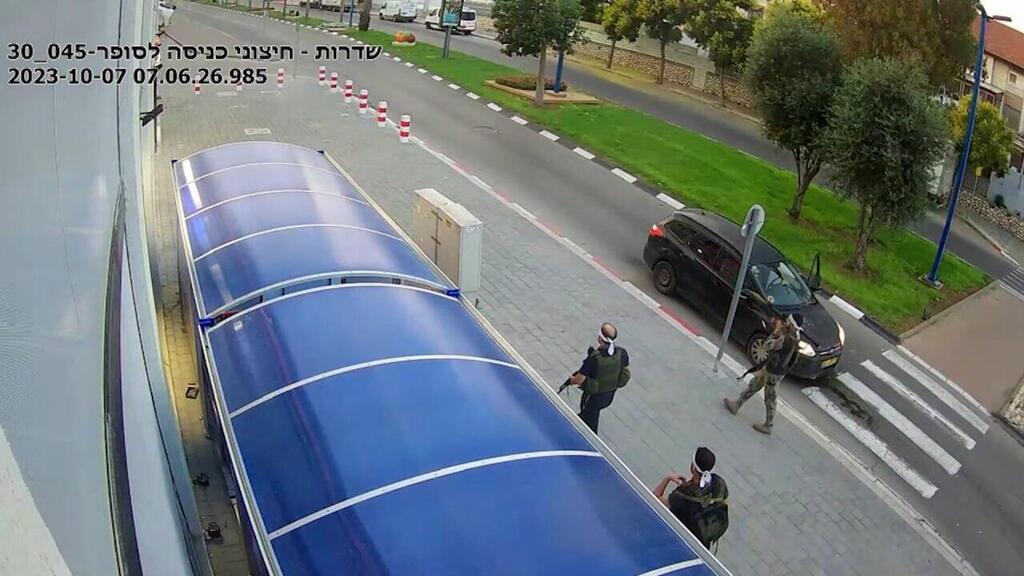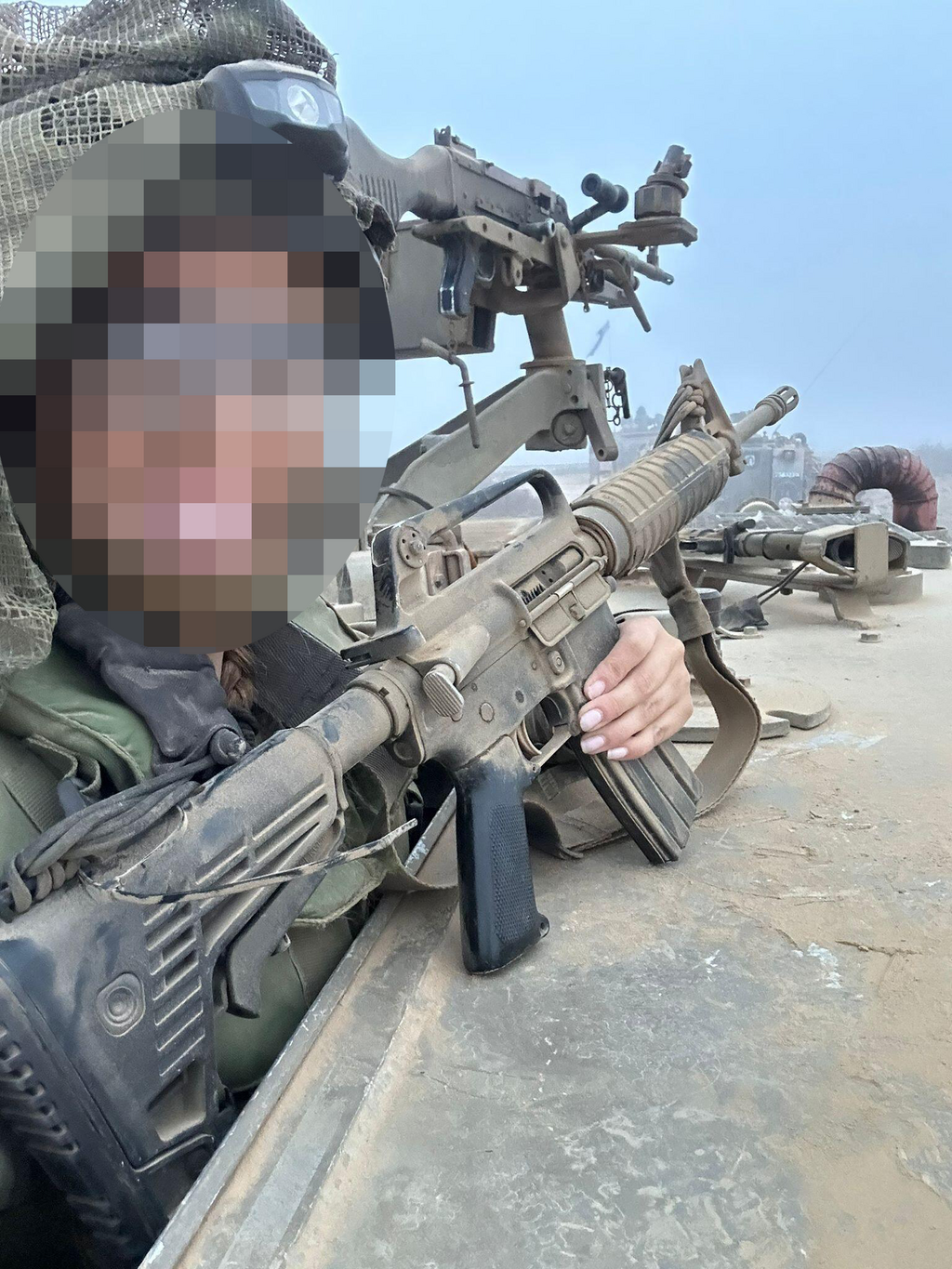A., a 26-year-old Magen David Adom (MDA) paramedic in reserve duty, made Aliyah to Israel from France 18 years ago. On the fateful Saturday of October 7, she found herself in the midst of the inferno, walking into the fire with her ambulance team. By the afternoon of that day, she was already drafted into the reserves and has since been steadfast in her determination to continue the fight.
Read more:
A., having just completed a night shift as a paramedic at MDA, found herself thrust into action when red alarms blared on the Black Saturday of October 7th. Recounting the unfolding events, she says, "I had just finished my shift at the call center when reports of casualties came in". Directed by MDA headquarters, she was instructed to join the paramedic driver in a bullet-proof ambulance, heading toward the south.
"By around 8:30, reception disturbances had begun, and it was only through the ambulance connection that we learned about the extensive shooting in Sderot". Together with her driver, they hurried to the scene, becoming the sole medical presence in the vicinity for the next several hours, until the southbound lane closure was lifted.
"We were speeding toward Sderot when terrorists on the road opened fire, and we encountered lifeless bodies all across the road. We grasped that we were dealing with a situation involving numerous casualties, but I had yet to comprehend the full scale of the event, nor could I even imagine what was about to unfold."
"This place, once a city, had transformed into a bloody arena. Strangely, the driver and I initially thought the attack was concentrated solely on Sderot, as we were out of communication and unaware that the mass violence extended across the entire southern sector".
"I worked like a robot, not feeling hungry or thirsty but staying focused on the goal: saving lives and treating as many casualties as possible. It was just the driver and me providing medical attention when the sounds of gunfire passed by our ears".
She recounts the initial hours of the murderous chaos that engulfed the area. "At the outset, I tended to gunshot victims among the IDF, police officers, and soldiers. It was only later that I had the opportunity to extend my care to civilians".
Engaged in a multitude of tasks, she disinfected, cleaned, and dressed wounds, secured artery tourniquets, administered transfusions, blood, and plasma, dispensed medication, and efficiently loaded as many casualties as possible onto each ambulance, ensuring their connection to those awaiting outside the danger zone.
"Throughout the entire day, we kept shuttling back and forth, and the most shocking part was that each time we retraced our steps on the same road, we encountered an increasing number of bodies piling up. It's unbelievable what happened there", she remarks.
"The supplies from my personal bag and the ambulance ran out quickly, so we had to replenish from the ambulances waiting for the road to open. We took dressings, transfusions, plasma, syringes, vein-opening tools, blood clotting medications, oxygen, and more. That's how we managed to restock all the equipment that had run out at an astonishing speed."
She didn't take a break, feeling neither tiredness nor fear. "I kept functioning as usual. I don't even remember being called to the incident after working all night without sleep. I worked like a robot, not feeling hungry or thirsty but staying focused on the goal: saving lives and treating as many casualties as possible. It was just the driver and me providing medical attention when the sounds of gunfire passed by our ears".
'We tried to provide as much assistance as possible.
She won't forget the wounded individuals she attended to, and hopefully assisted in saving their lives. "There was a soldier from the National Counter-Terrorism Unit with a gunshot wound to the stomach. He had tried to stop the bleeding with a tourniquet tied to his leg. When I reached him, he was unconscious and at immediate risk of losing his life. I administered blood and plasma to him."
4 View gallery


Hamas terrorist entering Kibbutz Kfar Aza in southern Israel
(Photo: via security camera)
"Right after that, I treated another soldier from the National Counter-Terrorism Unit who had been shot in the arm and leg. He had already applied two arterial tourniquets for himself. I attempted to loosen the arterial tourniquets, but seeing that he continued to bleed, I tightened them back and provided painkillers. Both of them were taken to an ambulance while they were still alive", she updates with great satisfaction.
"By around 1:00 p.m., after finishing to treat the forces in combat, we shifted our focus to treating the residents of Sderot. As we drove through the streets searching for wounded civilians, people shouted from windows or left a family member to call us because neither the police nor MDA could respond in the first few hours."
"Most of the people we treated had shrapnel wounds and were in stable condition, except for a man in his 50s whom I found in his home. He had been shot in the chest and urgently needed CPR, and we managed to stabilize him". On one street, they spotted a group of young people who had fled from the Nova party. "I spent a long time in the ambulance with one of them because he had been shot but was stable and refused to receive painkillers", she recalls.
In the afternoon, A. and the ambulance driver reached the Sderot police station. "I stood on the sidewalk, with a police officer behind me, while another officer stood across from us on the opposite side. Right before my eyes, he was shot and fell to the ground. The road was full of terrorists, so I couldn't reach him. He died on the spot".
By four o'clock in the afternoon, she received the call for reserve duty. Swiftly exchanging her MADA uniform for the army attire, she dove into the action. "Ever since that Saturday, I've been propelled by adrenaline, eagerly anticipating any extraordinary tasks that may come my way, like entering Gaza and dealing with the forces there", she shares.
In her military service, A. serves as a combat paramedic within a combat team actively engaged along the border fence and in the Gaza Strip. "I've been part of a tank entering Gaza and stationed on the fence in an armored combat vehicle. I'm so invested in this emergency situation that the thought of returning to normal life after being released from reserves scares me. What else can fulfill me as much as what I'm doing today?"
A. is 26 years old, resides in Raanana, and immigrated from France to Israel in 2005 with her family. During regular service, she served as a combat paramedic in the Haruv Special Unit. "After my release, I immediately began working at MADA while concurrently completing my bachelor's degree in communication at Ariel University.
"She's wholly immersed in her mission to assist and save as many people as possible. Furthermore, her two brothers are currently serving in the reserves in the Paratroopers Brigade and Golani. "I understand my mother's concern, but there's nothing I can do.
"It's an emergency, and everyone is doing their best to contribute where they can. Apart from treating casualties, I documented everything I witnessed in Sderot and Kibbutz Be'eri. When permitted, I'll share my documentation to ensure everyone truly comprehends what unfolded."





